The through-line coursing through this year is the sad familiarity of loss. My mother is often on my mind; Lebanon is often on my mind; my children are often on my mind. Trumpism that will outlive Trump is on my mind. I think of endings a lot, all the people I loved and lost, the griefs I have grieved. I think of what I take for granted, what I ignore, what I carry with me. I think of this Eavan Boland line a lot: The ache of things ending in the jasmine darkening early.
January: The Lebanese uprising choreographs my joys and disappointments. You see, in the fall of 2019, massive protests broke out over the impossibility of life in a state that suffocates the living. So much is at stake, but most urgently for me, the promise of a feminist breakthrough. I feel a hunger to learn “the wreck and not the story of the wreck,” as Adrienne Rich tells us, to connect to my Arab heritage, to learn the work of protofeminist Arab women writers. I read Layla Baalbakki’s second novel al-Aliha al-mamsukha (The Deformed Gods, 1960); I savor the rhythm and cadence of my mother language, my internal language, carrying me into the rich and deep world of my ancestors. In its essence, this novel disrupts the model of virtuous, submissive Arab womanhood as intrinsic to the welfare of the umma, or the commonwealth, in the aftermath of coloniality. In the protagonist Mira’s rejection of patriarchy–she says at one point, “I’ve had it up to here with fathers. If he weren’t dead, I’d wish he was”–I sense a groundswell of desire for feminist liberation billowing, unfurling. The more I read, however, the more dejected I become; Mira’s quest for subjectivity and power can only be imagined, called forth, made possible, at the expense of Black and brown migrant workers. In the Arab world, as elsewhere, hierarchies of race and gender work together to oppress those who are farthest away from whiteness.
I devour the trenchant words of Cathy Park Hong’s Minor Feelings, which exfoliates, among other topics, the racialization of Asian Americans as model minorities. Perhaps prophetically, she telegraphs the pernicious sinophobia in the months to come as the novel coronavirus spreads like wildfire in the US. Derisively, the outgoing president calls COVID-19 the “kung flu” and the “China virus” to make a point about Asia’s threat to America’s exceptionalism. I am enthralled by “Portrait of an Artist,” the essay on the avant-garde artist Theresa Hak Kyung Cha’s classic work Dictee. In addition to chronicling Cha’s achievement as an experimental artist, Hong recounts her tragic rape and murder days after the publication of Dictee. To fully understand the impact of Cha’s remarkable work, its reception and afterlife, Hong tells us, we need to consider it alongside the sexual violence and brutal death she endured as a Korean-American woman living in a world that has yet to create a place for her in it.

I spot Such a Fun Age in the new acquisitions display at my local public library and remember listening to a National Public Radio interview with its author, Kiley Reid. I marvel at Reid’s ability to create racially illiterate white characters who act by the playbook of white supremacy: white innocence, white tears, white rage. For example, Alix, the bourgeois white woman who employs Emira, the Black nanny, to care for her little daughter, is incapable of seeing Black girlhood and womanhood outside the optics of white saviorism. Alternatively, the babysitter is a young woman who experiences the uncertainties and mistakes of early adulthood in all its glorious contradictions. She falls in and out of love, enjoys sex, is ambivalent about her career, and worries about money. In social media parlance, she is #LivingHerBestLife. I believe this is the novel’s sharpest achievement: to unsettle white America’s love affair with the white savior narrative and turn it on its head.
I remember a reading I attended in the past–remember those?–when a well-meaning white man asked the poet Ross Gay about the place of racial struggle in his poems. And Ross Gay, in the sweetest and most generous Ross Gay fashion, said something along the lines of “I just wish to write about curling my toes in the grass or eating a loquat,” and that white readership’s expectation of oppression is itself racist, because they cannot see Black people as existing outside these violent and victimizing frameworks. In the same vein, I appreciate Reid’s development of Emira as a young Black woman who exists in the quotidian; alternatively, the white characters cannot translate Emira’s being and embodiment without employing harmful stereotypes. And Reid’s scrupulous peeling away of the white characters’ racism is truly a masterclass in storytelling.

At a poetry reading, my beloved friend Zoë Brigley Thompson reads from Hand & Skull. I’m so viscerally moved by her words, her passionate and powerful evocation of gender violence and environmental degradation as inextricably linked to the same power dynamisms. I cry in public. “My Last Beatitude,” an elegiac commentary on the heartbreak of miscarriage, shreds through my heart. The woman on my left offers me a Kleenex. On my right, a friend caresses my arm. Had I known lockdown was around the corner, I would have savored this last communion more intentionally, lingered in this intimate physical contact with a friend and a stranger.
February: I fall deliriously sick. Have I
contracted “the Corona,” as my children come to call it? The doctors have no
idea; I have no idea. Twice I get tested for the flu; twice my results are
inconclusive. My body aches. My head aches. I cry for my mother. No books,
please. Only self-pity; and a prayer for a national mass testing program.
Ding Dong. Bill of Mortality: 10 people die of COVID-19


March: A deluge of job rejections descend upon me and crush my brittle spirits. My ego hurts. My heart hurts. I crawl back to bed, but with a stack of steamy romances this time. I enjoy Bringing Down the Duke for its protofeminist fantasy, hot sex scenes, and a brooding, class-conflicted duke. Gail Honeyman’s Eleanor Oliphant is Completely Fine lifts my spirits.


In Lebanon, my grandmother Yvonne dies, alone. She is buried alone. It is a story that would permeate the months to come, as deaths by Corona, in isolation, become a daily reality. She speaks to me through a fugue of food, poetry, and music. For most of her adult life, Yvonne lived in the border town of Baalbek, where I spent many summers in the shadows of the Roman ruins. The sensorium of these summers–their taste, smell, and feel– returns to my body as a summoning. I crave my grandmother’s Damascene pumpkin preserves and her makdous, or stuffed aubergines cured in oil. Cherríe Moraga’s Native Country of the Heart, a memoir of and homage to her mother Elvira, is a balm to my longing for a life long gone, in that borderless geography of community and care. It is a book I love and return to when I miss my mother and all the women who mothered me. I find solace in the essays in A Map Is Only One Story, edited by Nicole Chung and Mensah Demary, that contemplate the meaning of family, memory, and immigration. Jamila Osman’s “A Map of Lost Things,” about rootedness and uprootedness, loss and memory, devastates me. So does Lauren Alwan’s “Arab Past, American Present.”
Ding Dong. Bill of Mortality: 3,169 people
die of COVID-19
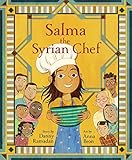



April: The magnitude of the coronavirus is impossible to grasp. My husband and I slouch towards indefinite confinement with two little children. I cherish the whimsical and compassionate world these children’s books create: Salma the Syrian Chef, Grimelda the Very Messy Witch, Diary of a Wombat, Frog and Toad, What Do You Do with an Idea, and Amos & Boris. I feel a camaraderie with Anne Enright, whose Making Babies: Stumbling into Motherhood is an exhilarating portrait of motherhood in all its euphoric highs and wretched lows. I want to love Ocean Vuong’s On Earth We’re Briefly Gorgeous, but my own struggle with motherhood makes it impossible to appreciate the lyricalization of bad mothers. Likewise, Anna Burns’s brilliant fictionalization of the Troubles in Milkman is too close for comfort. It triggers the ambient sound of unease–the foreboding hum of civil strife–that coursed through my childhood.
Days come and go. Bill of Mortality: 15,454 people die
of COVID-19



May: My friend Annie recommends Susan Choi’s Trust Exercise, about gifted teenagers in an elite arts school and the charismatic teacher who abuses them. I’m engrossed in part one of the novel, but when the narratorial point of view shifts in part two, I lose interest. Rattled by the uncertainties of COVID-19, I do not have the mental and emotional bandwidth to put my trust in an unreliable narrator. I yearn for comfort; I lose myself in Ross Gay’s book of sparkling vignettes: The Book of Delights. Taffy Brodesser-Akner’s Fleishman is in Trouble, about a sometimes self-loathing and a sometimes megalomaniac middle-aged white straight man who libidinizes women, does not hit the mark. I am enthralled by Nikki Grimes’s Ordinary Hazards, a harrowing and triumphant memoir in verse.
Days come and go. Bill of Mortality: 6,128 people die
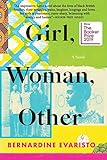
June: The racist murders of Ahmaud Arbery, Breonna Taylor, and George Floyd unleash convulsions of rage, public and private, and an upswell of racial reckoning with the ever-present brutalities of white supremacy. Bernardine Evaristo’s Girl, Woman, Other is a fabulously exquisite, expansive tour de force on womanhood from multiple perspectives, multiple histories, and multiple networks; on Black queer love; and on Black feminist everlasting movement towards the commune and the communal.
Days come and go. Bill of Mortality: 3,795 people die of COVID-19
July: Black feminist scholars, artists, and activists respond to the conjoined violence against Black lives: violence as the carceral state; violence as the health system; violence as low-paying jobs; and most brutally, violence as law enforcement. Saidiya Hartman’s essay in Artforum evokes the poetics of refusal and activates an abolitionist imaginary. Dionne Brand’s “On Narrative, Reckoning and the Calculus of Living and Dying” rejects the fantasy of “a return to normal”–a fantasy only afforded to those who benefit from the after-effects of coloniality, the brutalities of slavery, and the tyranny of border imperialism. I am inspired by Black feminist ethics of compassion and care, where people make space for each other, keep an eye on each other, elevate each other.
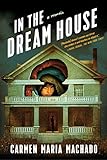
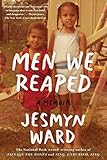

Carmen Maria Machado’s ground-shifting memoir In the Dream House is like nothing I’ve read before. Men We Reaped, Jesmyn Ward’s elegiac memoir about loss and mournfulness, brings back buried memories of a good friend who also died a young and violent death in my senior year of high school. In Tommy Orange’s There There, I learn about a historical act of Native American reclamation that representations of the counter-cultures of the 60s have erased: the Native American occupation of Alcatraz from 1969-1971. I love how Orange braids the utopic dreams of Native resistance with the brutal realities of executing such an ideal, from securing food and shelter, to sexual violence, to death. For a personal essay that sutures my border-crossing story during the Lebanon-Israel War to a critique of the movie Sérgio, I revisit Edward Said’s Orientalism, a magisterial classic that deconstructs white European power over the stories of the Global South.
In joy, I read Oyinkan Braithwaite’s My Sister, the Serial Killer in one sitting on a hot summer afternoon while my children splash around in the plastic paddling pool. It is hilarious from beginning to end, but also astute in its telling of sibling rivalry and the creative ways in which women join forces–here in the form of sororial solidarity–to disrupt patriarchy’s sway over their lives. I laugh whenever I see copies of My Sister on display at my local library. I welcome the escapist distraction of Libba Bray’s The Diviners.
Days come and go. Bill of Mortality: 8,151 people die of COVID-19


August: The catastrophic explosion in Beirut shatters me. The words of Souad Labbize in Je Franchis les Barbelés (I cross the barbed wire) telegraph the intense alienation I feel in America sometimes, when my heart, mind, and soul are preoccupied with Lebanon. This dual existence is so seamlessly woven into the fiber of my life that it goes unnoticed in my everyday life. But when a thread rips or loosens, when a cataclysmic, man-made disaster kills 200 people in one blow, my entire sense of self rips open, lays bare, comes undone. Jericho Brown’s poems in The Tradition are a daily tonic. Mohsin Hamid’s incantatory Exit West dwells on the meaning and effect of displacement, statelessness, vulnerability, and loss; on doors that open, and doors that close; those who cross our paths and those we leave behind; on the staying power of love. I recall the Warsan Shire line: No one leaves home unless home is the mouth of a shark. The passages describing Saeed’s praying rituals are the most beautiful evocation of a person’s congress with the cosmic I have ever read.
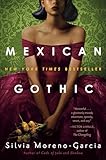
Mexican Gothic is a suspenseful treat–a latinx variation on the southern gothic genre where the master’s house–the plantation house or the mine mansion–molts and then burns to the ground as a symbol of purification and excision. What remains is the regenerative promise of love; and a sassy heroine with an impeccable sense of style.
Bill of Mortality: 5,584 people die of COVID-19

September: Unthinkable rage and disillusionment after a Louisville Grand Jury exonerates the police officer who killed Breonna Taylor in her sleep. In Citizen: An American Lyric, I dwell on Claudia Rankine’s power to bring Serena Williams’s righteous anger to the page.
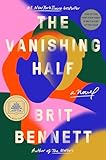

Brit Bennett’s The Vanishing Half is the book of the summer for me. It is beautiful imagining of queer kinship and Black futurity throws into sharp relief the stagnation and toxicity at the heart of white heteropatriarchy. Similarly, Yaa Gyasi’s Transcendent Kingdom is a stunning and devastating novel about border crossing, from Ghana to the US to Ghana again; about the movement between the elusive borders of faith and science; and a précis on the overwhelming, debilitating sway of grief; our hunger for human connection; and for the life-affirming promise of love.


Themes of loss and grief find me again in Lily King’s beautiful Writers and Lovers. I love it and look for other books by King. Quite predictably, I pick up her award-winning Euphoria. I’m a sucker for stories of unrequited love, but the ethnographic spectacle of indigenous inhabitants of Papua Guinea as backdrop to the tempestuous love triangle between the American anthropologist, her Australian husband, and her British lover does not sit well with me.
Bill of
Mortality: 4,003 people die of COVID-19


October: My friend Emer recommended Fiona Mosely’s Elmet, which is set in a damp and brooding Yorkshire and has a gothic flavor to it. It is a tense and unnerving read. It stays with me for days. Brandon Taylor’s Real Life articulates with such subtlety and such tenderness the alienation of a Black gay man living in a white world. In the novel, this punitive dynamic plays out in a postgraduate lab where white characters claim racial innocence and cognitive superiority while Wallace is subjected to the insidious stereotypes that many of my Black colleagues have experienced in majority-white universities.

Steve Mentz’s Ocean is both a lyrical and scholarly ode to the sea, encrusting and fluid. Mentz’s meditation on the ocean and its valence in our cultural imagination wake so many memories of my amphibious childhood in an industrial seatown by the Mediterranean. Mine wasn’t a pastoral, Cousteau-esque experience, however. My family, along with our neighbors, swam in waters infested with sewage, industrial run-off, and on occasion, the carcasses of butchered animals. We witnessed dynamite fishing and the aftermath of dead fish floating everywhere at dusk. We also saw the first signs of war from that same coast, when Syrian and Israeli warships sailed too close to the shore. Despite all this, my relationship to the sea is still one of perpetual longing–what the Portuguese call saudades–of fragile, fragmented memories that follow the movements of the waves.
Bill of Mortality: 5,409 people die of COVID-19
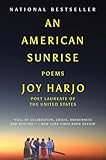

November: The lead-up to the presidential election grips me for weeks. Poetry becomes a lifeline, particularly Joy Harjo’s An American Sunrise. I adopt these lines, about the continuity of past and present, as my mantra: History will always find you, and wrap you / In its thousand arms. I follow Audre Lorde’s instructions in A Burst of Light: Living with Cancer “to listen to what fear teaches.” I fear blatant tyranny. I fear unfreedom. I fear a past cordoned off from the present.

Meredith Talusan’s Fairest is a poignant, powerful, poetic triumph of a book. Talusan breaks up and remakes her world, expands and contracts time; her childhood in the Philippines as a sensitive child with albinism; her gender transition; her bildungsroman as an essayist; her staggering reflections on race, class, and sexuality. Especially salutary is the incisive final essay, “Lady Wedgwood”–an honest, heartbreaking honoring of a love that ran its course, a love that enfolds and enfloods despite its ending.

Recommended by Talusan, Enfance by Nathalie Sarraute is elliptical, raw, and refined all at once; the two-ness of adult and child narratives interlocking, stabilizing and destabilizing memory, punctuating the slipperiness of language. It starts with these brilliant sentences: “Alors, tu vas vraiment faire ça ? ‘Évoquer tes souvenirs d’enfance…’ ” (So, are you really going to do this? Evoke your childhood memories?) I talk openly about my desire to write my own memoir of a childhood marked by the Lebanese Civil War.
After the election, I gravitate toward the
voices of Arab Americans and their place in the American landscape. I’m not on
a quest for identity, but the discourse of American exceptionalism touts me,
and I find myself mulling over my tenuous relationship with my homeland, my
rejection of American military imperialism, its glorification of individualism
at the expense of the collective, and my embodiment as a diasporic settler of
color living on the traditional lands of the Shawnee, Miami, Lenape, and other
indigenous peoples.


I end the year with two Arab-American jeremiads: Laila Lalami’s Conditional Citizens and Massoud Hayoun’s When We Were Arabs. How do Arab Americans, whether Muslim, Jewish, or Christian, navigate the aura of suspicion and provisionality that surrounds them on a daily basis? In what ways can Arab Americans tell their unique American story on their own terms? To what extent can we disrupt the one-dimensional narratives of religious extremism, or backwardness, or superficiality that America attaches to our stories? These are some of the questions both Lalami and Hayoun explore in their incantatory meditations on their identities. Lalami’s searing story of migration and American citizenship resonate with mine. Ranging from themes of allegiance, to faith, to borders, she excavates the complex, multilayered, and nuanced story of being an Arab and Muslim woman living in the US. She is a conditional citizen, Lalami tells us, expected to perform her allegiance and gratefulness time and again in a political climate that is always already suspicious of Arabs and Muslims. Most powerfully and righteously, she bursts the myth of American innocence, renders hypocritical those who love the USA unconditionally, who sanitize a past of slavery and ignore the machinery of American imperialist warfare.
“I am a Jewish Arab. For many, I’m a
curiosity or a detestable thing. Some say I don’t exist, or if I did, I no
longer do.” So begins Massoud Hayoun’s memoir–a story of his Jewish family, a
story that creates the space to speak about a casually erased and willfully
forgotten population of Arabs. It is a beautiful act of resistance, of defiance
against erasure, of dreams of ancestors and their desire to build, create, and
enact a place for themselves and their descendants in the world. It is truly a
thing of beauty and reverence.

On and off, I try to read Rumaan Alam’s Leave the World Behind; however, the dystopian end-of-the-world feel pulsating through the first pages makes it impossible to differentiate fiction from the affective texture of our present moment. In the here and the now, the ruling class has abandoned its people. Those in power make hostile, destructive choices daily in favor of personal advancement and capitalist accumulation. COVID has infiltrated our lives, our language, and our metaphors. Our world is rattling, crumbling right in front of our eyes.
Ding Dong. Bill of Mortality: 234,264 people have unwillingly left the
world behind.
More from A Year in Reading 2020
Do you love Year in Reading and the amazing books and arts content that The Millions produces year round? We are asking readers for support to ensure that The Millions can stay vibrant for years to come. Please click here to learn about several simple ways you can support The Millions now.
Don’t miss: A Year in Reading 2019, 2018, 2017, 2016, 2015, 2014, 2013, 2012, 2011, 2010, 2009, 2008, 2007, 2006, 2005
The post A Year in Reading: Mira Assaf Kafantaris appeared first on The Millions.














